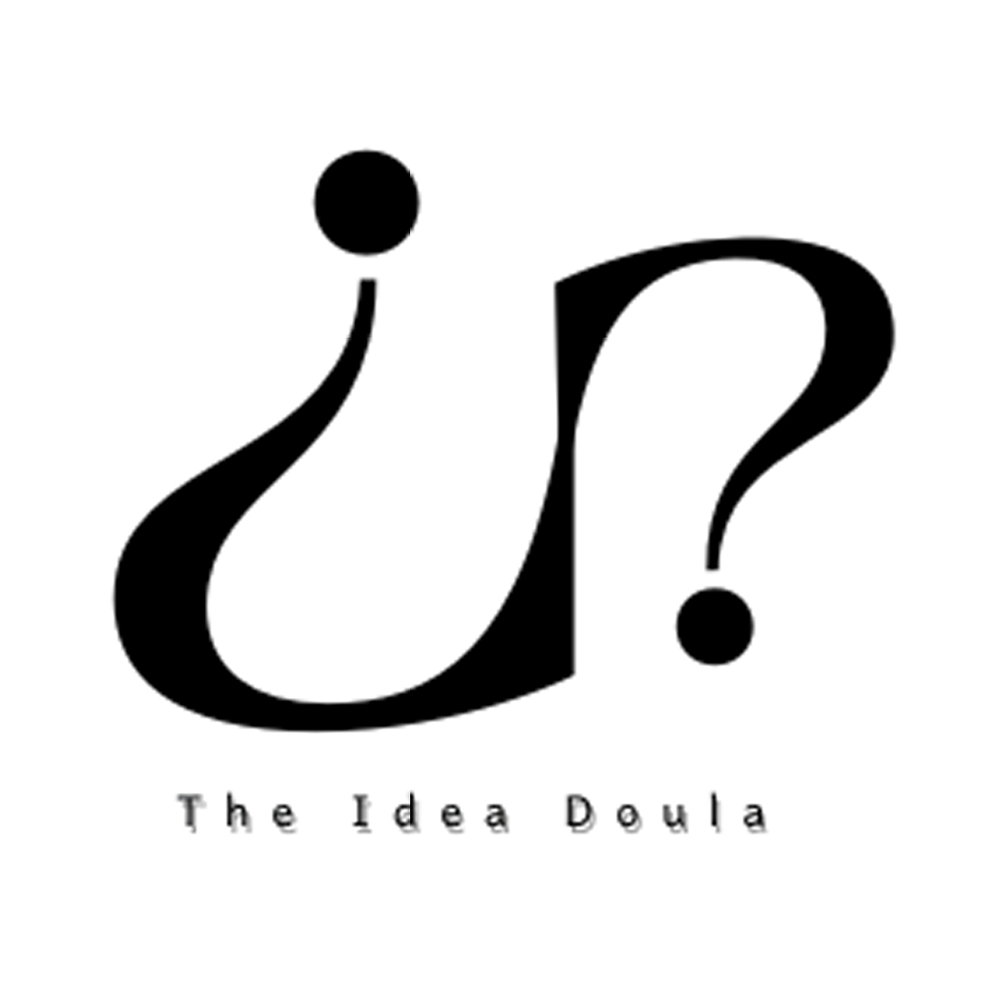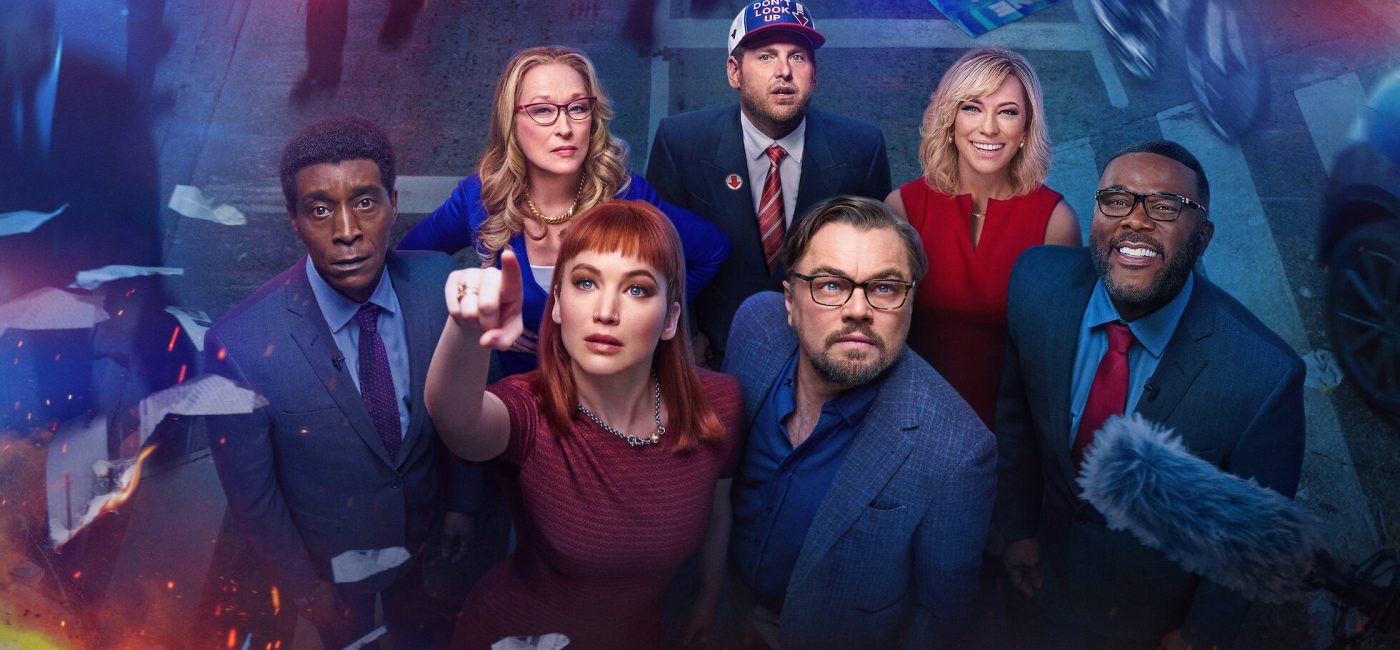I’d say “spoiler alert,” but you can’t spoil something bad.
Making someone laugh is a gift. Making someone sad laugh is a powerful gift. And when we watch movies during our moments of sadness, we seek one thing from them: either for them to carry us far from our grief or for them to comfort us in one way or another. “Don’t Look Up” fails on both counts. Throughout this film that’s been marketed as a satire/comedy drama, the right message is said in the wrong way, to the wrong audience, and at the wrong time. “Don’t Look Up” is a punch-line at the worst possible moment.
[Disclaimer: If you separate art, especially art coming out of Hollywood, from the cultural moment we are in as a global society, this review will make close to zero sense to you. You have been informed.]
The film starts out with a PhD candidate discovering a comet that we later learn is known as a planet killer. Together with her mentor professor and another leading mind in the sphere, she heads to the White House, which is apparently the decided seat of power for the civilized world. Here, the three try to explain to the deliberately obtuse President and her chief of staff that the world is about to end. And while they have the chance to try and deflect it, the threat of the comet is very real and incredibly imminent.
At this point, the film, because it has set the premise that it is a comedy, has the opportunity to demonstrate to us what is funny about the idea of cosmic annihilation. Instead, it guides us to the mockery of our own crucifixion on the cross of political and sickening financial gain. Having understood the dire consequences of not correctly responding to the comet and having grasped the indifference of the U.S. government to the threat, we connect the dots: the world will end and the people who can do something about it, about anything, have chosen to do nothing. No one’s laughing. Nothing about this is funny. Nothing about this is ironic.
At this point, someone might posit, “Maybe it’s satire.” To which I reply, satire for whom? from whom? to whom? Because if we’ve decided that the malevolent ignorance of the wealthy and the ruling class who they control is the kicker of this comedy, we have lost our ability to discern between the hilarious and the absurd, and thus our strength and foundation to fight for liberation and justice. If we’re giggling when it’s time to be sober and fix our eyes on the people sapping the lifeblood from our hearts as they beat, we are in a horrible place as a society.
In the movie, “Don’t Look Up” is the slogan of everyone who decides to ignore the existence of Comet Diabisky. And around this point, we bump into the character known as Yule. Yule brings me joy because he’s a person of faith in a time when everything is hopeless. He’s an anarchist when everyone is aligning themselves with the ludicrous money-hungry plans of President Orlean. And yet, even Yule cannot salvage the nonsense of the entire premise of “Don’t Look Up” because he introduces its most insidious tool and the final blow in the pummeling of an already trampled audience: spiritual bypassing.
Yule tells us he was raised Evangelical and figured out his own way back to it. I relate because I too was raised Evangelical and have found my own way back to the Christian faith, albeit rejecting many of the premises of the Evangelical movement. And in the moments of reckoning and coming to terms with the end of the world, Yule prays. A lot. (Actually, a lot of other characters throughout the movie talk about the option of praying as one that could allow people to experience relief during such unprecedented times.) And, to me as a person of faith, his prayers are a thing of beauty, filled with reverence and earnest yearning for God. Yule presents us with a deceitful alternative to action in the face of insurmountable odds. However, when the world is ending, and we can see the people ending it right in front of us, we can’t “just look up” to God and do nothing about the nonsense surrounding us.
At the end of the film, after Yule and everyone we care about is dead, a post-credits scene of sorts spoons the final dregs of spiritual bypassing into the mouths of an audience that’s already sick, tired, and dying for relief from this farce. The rich billionaires and trillionaires and world leaders who had enough pull to get on the time-stopping cryochamber (or whatever it is) finally land on a beautiful green New Earth. This is 20,000 years into the future. As President Orlean strolls around, she’s brutally and abruptly mauled by one of the planet’s native bird creatures. A flock of these birds surround the newly landed rich folk and we’re left to understand that cosmic justice has been served; everyone dies in the end.
The real failing of “Don’t Look Up” is something for which Madam President scolds her Chief of Staff son early in the film: It does not read the room. In fact, this hit-and-miss of a movie does something worse: It read the room and still got the delivery wrong. How does one observe a global pandemic and an imminent climate crisis and decide the appropriate message to deliver is “just look up” and “hey, you know, in the end, everyone gets their just desserts”? As a global society, we need to have our feet solidly planted on the ground, not up in the sky watching as our end comes to meet us. And that is how “Don’t Look Up” made me look away.


One Reply to “How "Don't Look Up" Made Me Look Away”
YUP yup!
To make a cruder analogy than you, it felt like a fairy joke at a funeral.